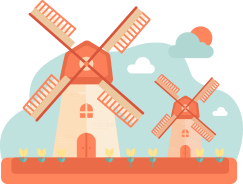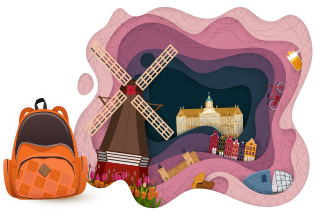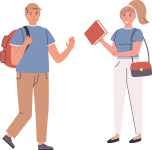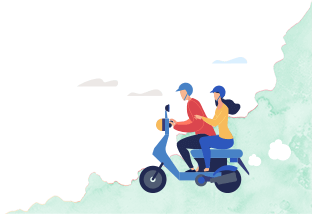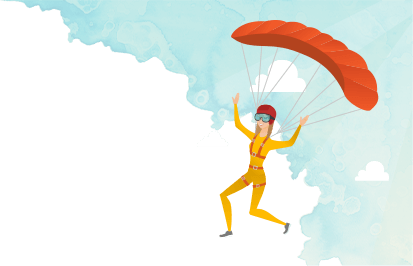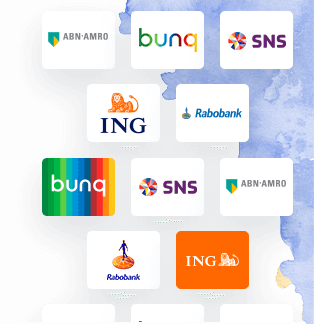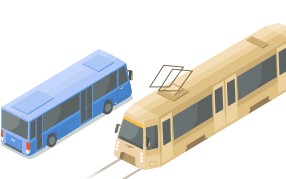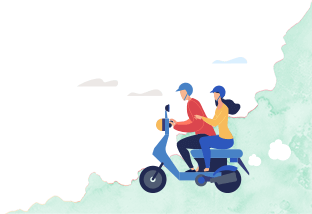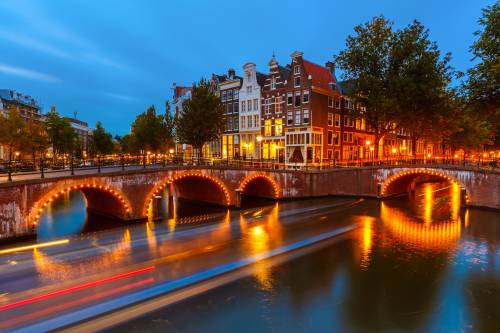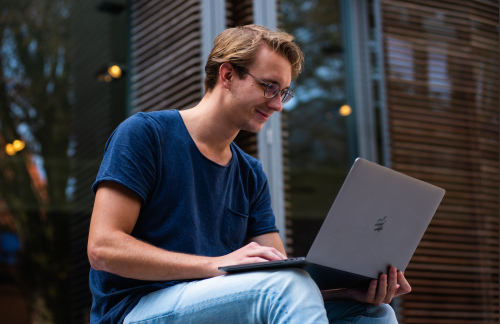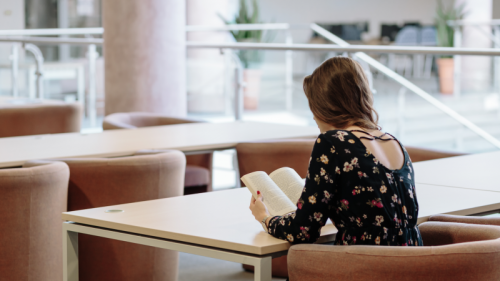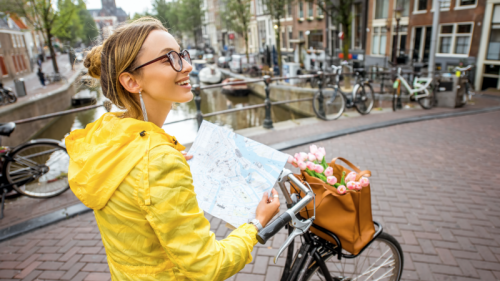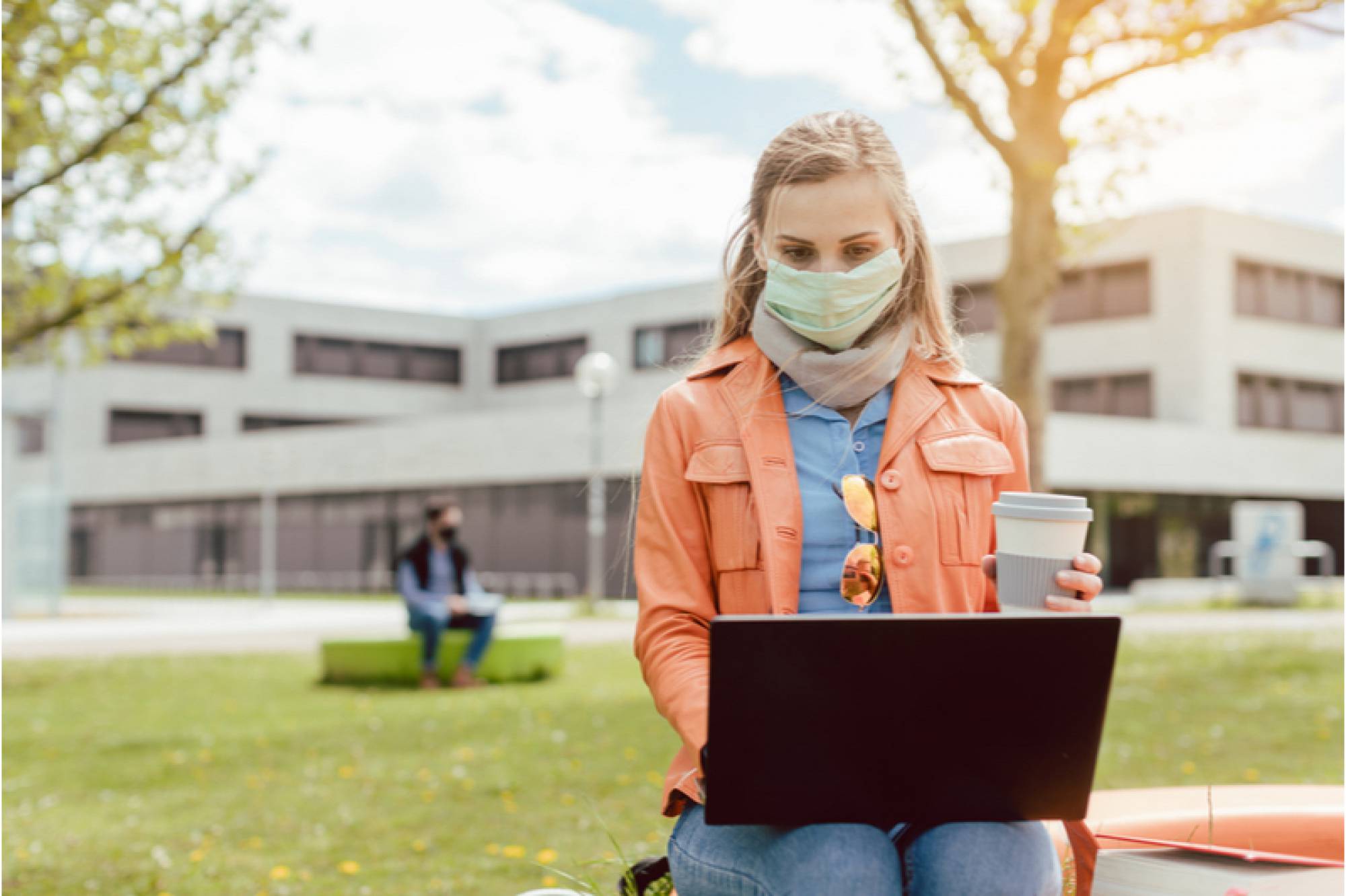
However, what does “studying” in the Netherlands even mean these days with all the measures counteracting Covid-19 in place? This is a very valid question that isn’t always easy to figure out, especially from abroad. Moreover, during this unpredictable time, everything is subject to immediate change.
Therefore, we dug into the national guidelines provided by the Dutch government to give you a brief overview. In addition, we have been tracking our own daily lives to give you an idea of what you can expect your day-to-day experience to be. So, without further ado, this is what you can expect studying and living in the Netherlands to be like.
Governmental guidelines
First off, studying in the Netherlands, both Bachelor and Master degrees continues as much as possible. However, the 1.5 meters (5 foot) social distancing rule will remain in place. So in order to facilitate this, physical classes will be spread out over the day and over the week, and part of the curriculum continues to be taught online. In and around the university and library facilities, the guidelines set up by the RIVM (National Institute for Public Health and Environment) are leading, and in public transport, wearing a facemask is mandatory.
Keep in mind that if you live, or plan on living, in a student house, that you and your roommates will not be considered as a single household for the Corona guidelines. However, if you or one of your roommates is suffering from one or more of the COVID-19 symptoms – common cold, running nose, raised body temperature, sneezing, coughing, throat aches, sudden loss of smell or taste, or fever – then everyone should practice self-quarantine until the symptoms are gone for 24 hours.
Internships & PhD’s
Decisions on whether you can do your internship or PhD research during the fall semester are determined on a case-by-case basis. Since the medical situation and safety is paramount, you can check with the local GGD (Public Health Department) to check whether your facility meets the requirements. Alternatively, you can explain your case and wishes to us, and we’ll do the research for you.
Healthcare students
In the first place, healthcare facilities themselves will judge whether students can aid patient care in a safe manner. Yet, luckily there is also room for your own motivation, so make sure to take this opportunity and make a case for why you would or wouldn’t want to participate in an internship or research. Even if your request is denied, you can still opt for working as a student-volunteer at a healthcare institution to get some of that hands-on experience that is valued so much in healthcare employment.
Dutch daily life in practice
So, what does life outside of the university spheres look like? Since July, the social measures are relaxed once again, meaning that without a reservation up to 100 people can gather inside cinemas, cafes, restaurants, theatres, etc., while nightclubs and discos have to remain closed until September. Outside on terraces etc., up to 250 people can meet without a reservation, while zoos and theme parks have no visitor limits. Keep in mind, though, that many public places – both inside and outside – require you to make a reservation regardless, for most places are reduced in capacity to ensure 1.5 meters distance.
In practice, public behaviour has largely returned to pre-Corona times, although people are generally more hygiene conscious than they used to be. Disinfectants are everywhere, so shared materials such as shopping carts or gym equipment can be cleaned effectively before passing on to the next person. Also, most sports activities are back to normal again, albeit that changing rooms and showers remain closed for now.
Covid-19 society takeaways
Relax, there is little that you can control anyway. If there’s one thing that the Covid-19 pandemic has taught us, it’s that much of what we consider to be fixed societal practices can radically change overnight. This is something we have no control over, and accepting this makes it a lot easier to cope with. Subsequently, you can focus on what you do have control over, namely your response to the ever-changing social conditions.
Thus, remain flexible in your (travel) plans, start arranging your student accommodation if you haven’t done so already, and know that you’re definitely not alone in trying to meet new people or wanting to explore your new student environment. So, don’t be shy to sign up for that sports club or one of those online (introduction) events. However, if planned interaction isn’t your thing at all, rest assured that people in the Netherlands still go outside and talk to random strangers.

